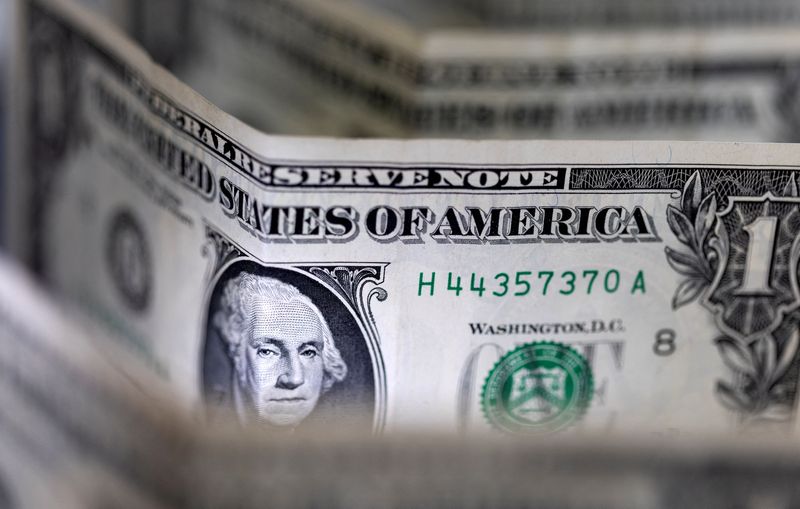By Shankar Ramakrishnan and Nell Mackenzie
(Reuters) -A measure of U.S. default risk is flashing red as talks over the government's debt ceiling drag on, with speculation driven by the lure of a quick profit inflating the value of the derivative, market strategists and investors said.
Spreads on U.S. government one-year credit default swaps (CDS) – market-based gauges of the risk of a default - widened to 175 basis points, an all-time high, earlier in May on rising fears lawmakers could not reach a debt ceiling deal.
Those spreads were at 160 basis points on Thursday, according to S&P Global (NYSE:SPGI) Market Intelligence data, slightly lower than a close of 162 on Wednesday, but still signaling investor concerns as the debt ceiling talks continued.
The low-cost, high-reward mechanics of how CDS would pay out has attracted hedge funds and speculators to the trade, according to analysts, investors and bankers.
"The instruments are ... unusually attractive to buyers because the cost of the bonds that would be delivered into a default-triggered settlement auction have plunged in value over the last year," said Karl Schamotta, chief market strategist at Corpay, noting that it was due to the U.S. Federal Reserve raising rates.
CDS were now trading more like interest rate put options than the true insurance contracts that they are, meaning "the implied risk of a default remains far lower than can be inferred from spreads alone," he said.
CDS spreads have risen quickly this month - from roughly 80-90 basis points in March and 17 basis points at the beginning of the year – as the debt ceiling fight intensified.
The implied probability of a U.S. sovereign default - a measure of the probability using CDS spreads versus the value of the underlying bond - was still very low in the 3-4% area compared to the 6-7% area in 2011 during a similar legislative standoff on the same borrowing limit when CDS levels also spiked but only up to a high of 80 basis points, according to Reuters calculations.
In a potential CDS payout – after a non-payment event is determined – the price of the cheapest to deliver bond is typically used to settle the derivative contract, and those bonds have been priced significantly lower due to the low-coupon issuance in mid-2020, when yields were near record lows.
Wilfred Daye, CEO of Samara Alpha Management, an alternative asset manager, said in case of a sovereign default, those buying the insurance at current rates would expect a high payout. If the sovereign did not default, they would lose the premium which was roughly 1-2% paid to buy the insurance.
“If the payout was just 5 times nobody would be doing it, but when you have 25 times payout, people want to bet on it,” said Daye.
One derivatives banker based in Europe said hedge funds normally known for trading sovereign debt on macroeconomic signals made up the biggest buyers of protection.
These funds began buying CDS protection on the U.S. government taking over the trade from more traditional bond trading credit firms after the risk of a U.S sovereign default grew, one investor who declined to be named said.
The average ticket size on some of these trades ranged between $20-25 million, said the banker. Insurance was being bought by hedge funds and sold by some Asian and European accounts who had bought protection earlier when spreads on such insurance were trading at low levels.
For Athanassios Diplas, an ex-CDS trader, the extent of the damage a default would cause was difficult to grasp, given the wide use of Treasury bonds and bills as collateral.
"The use of T-bills is so prevalent," he said.
